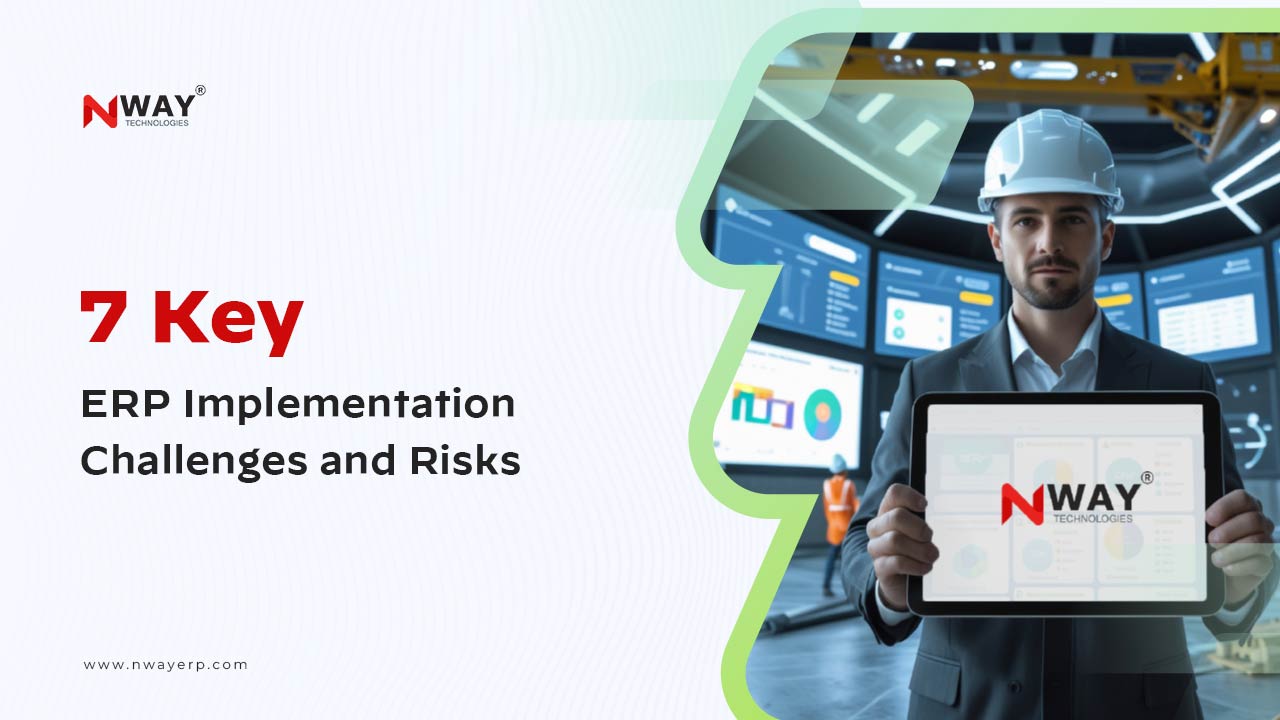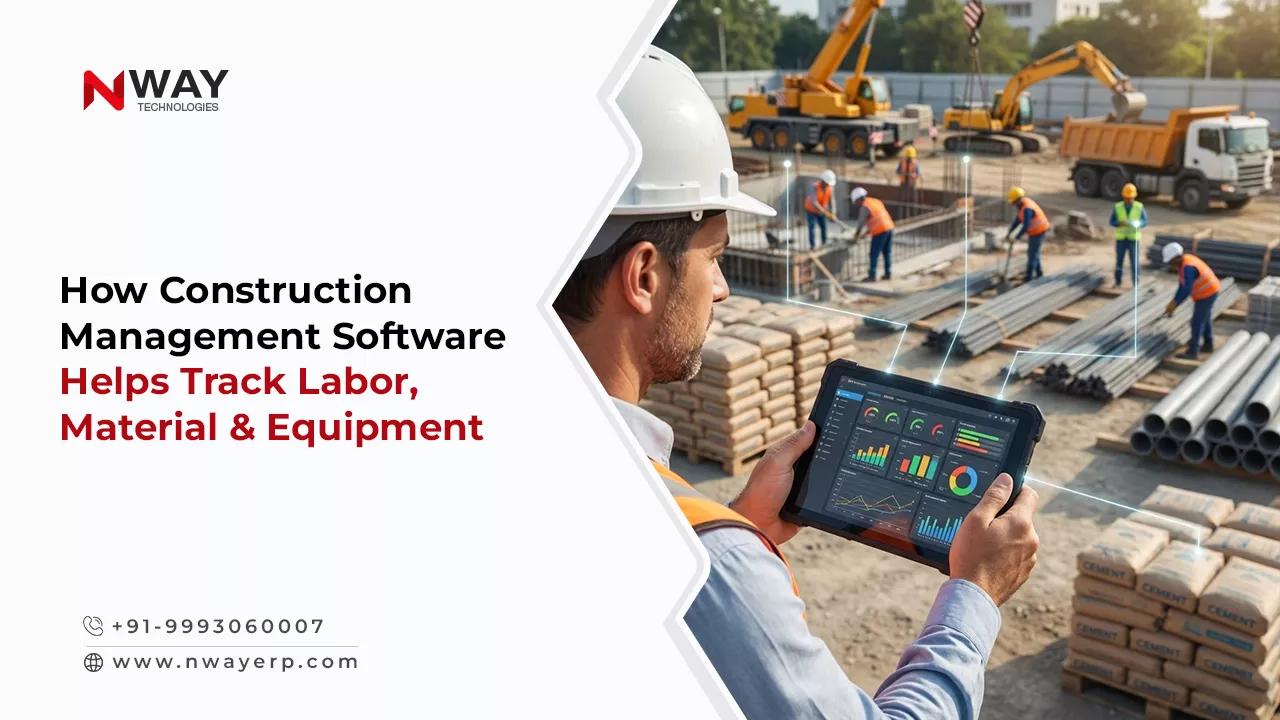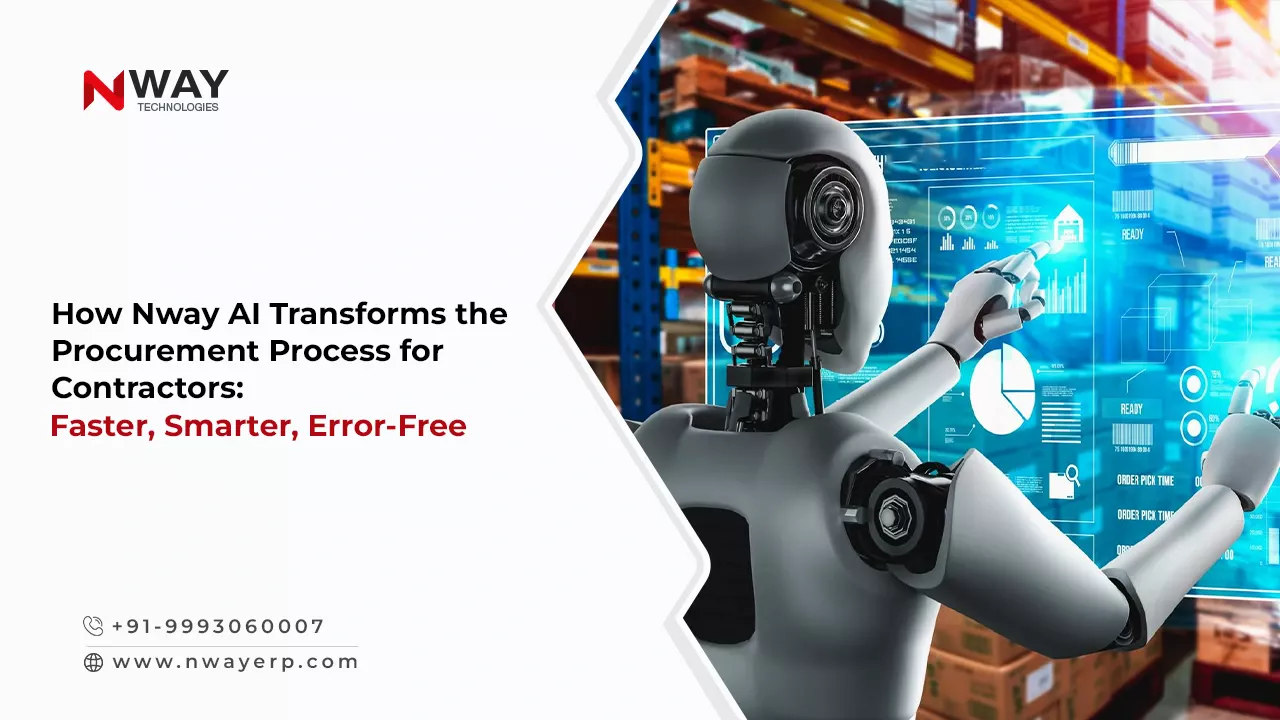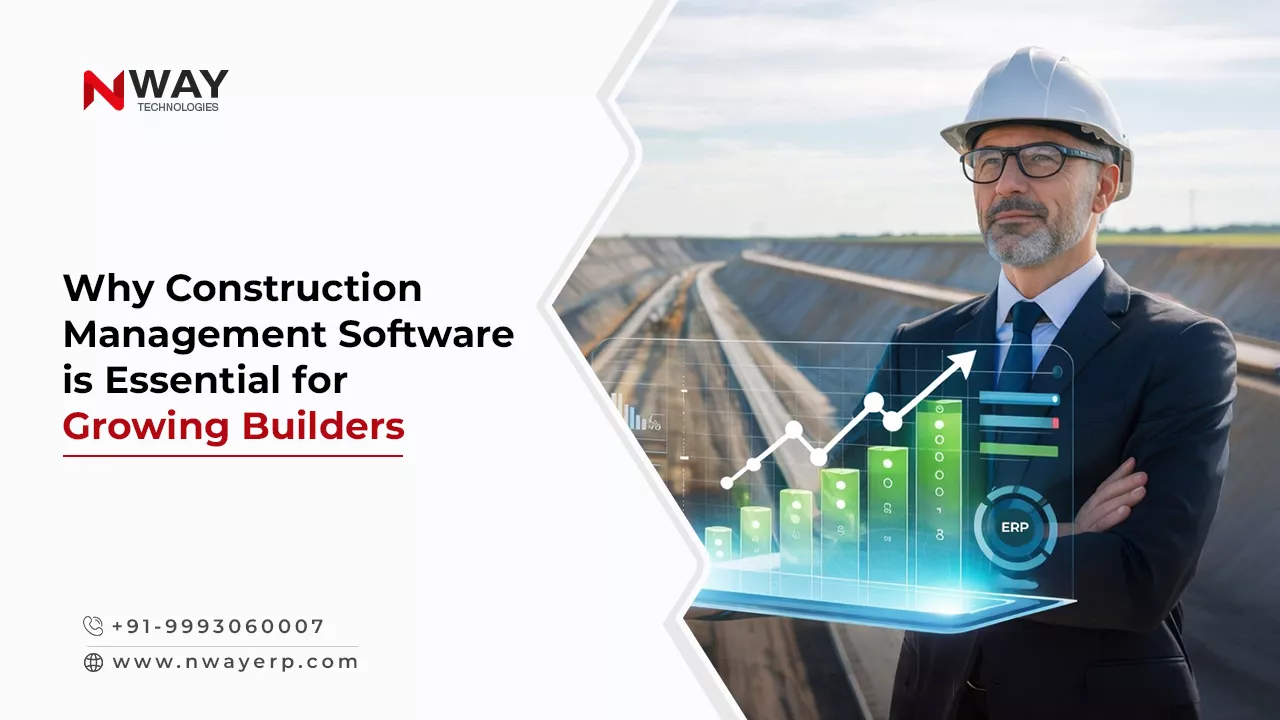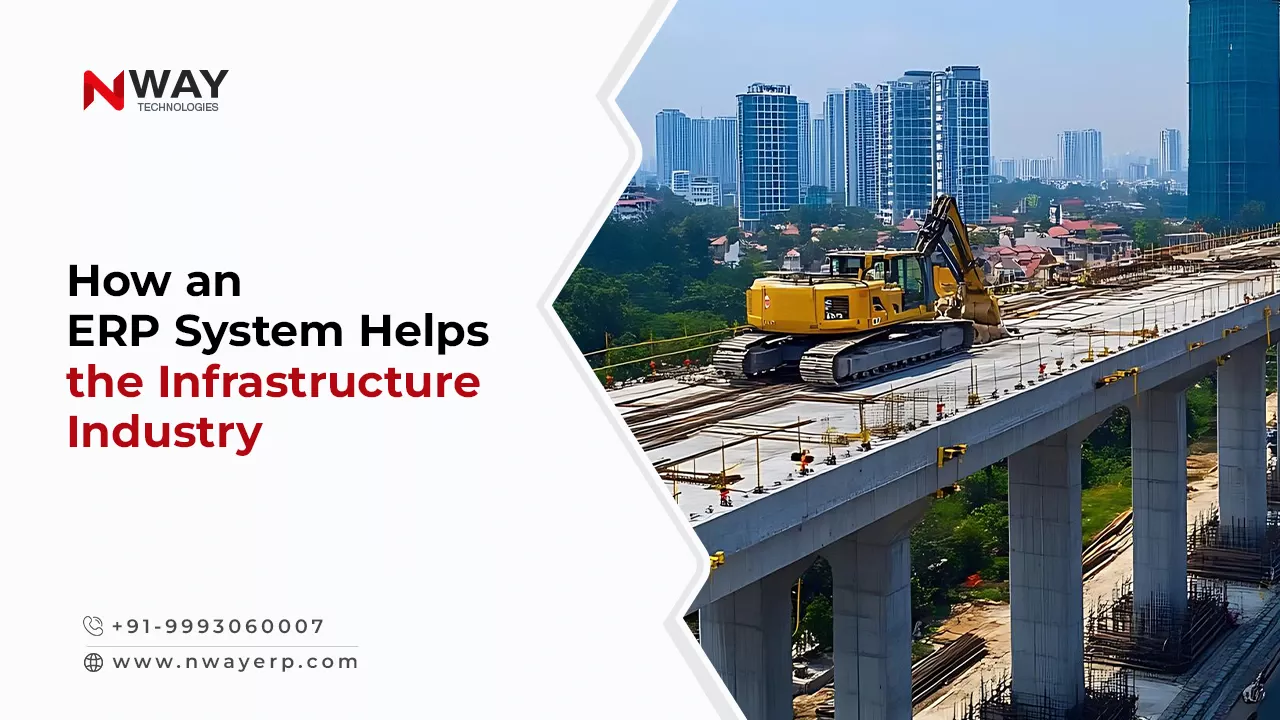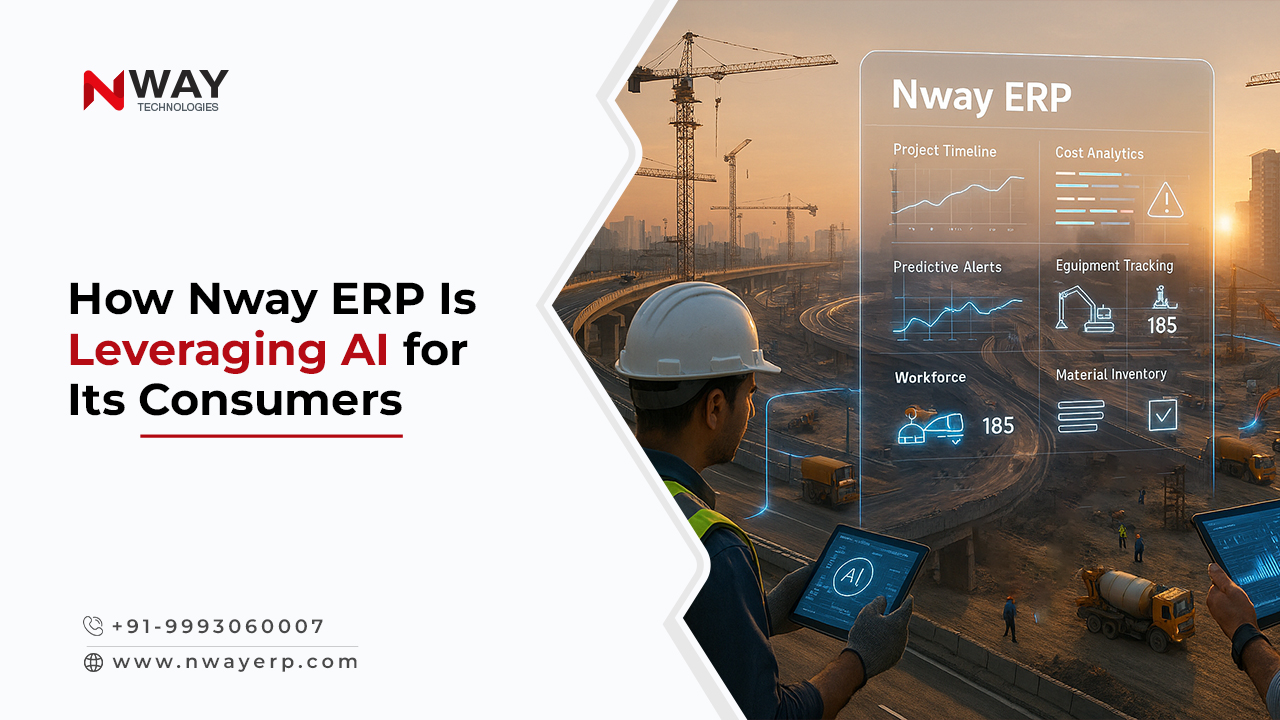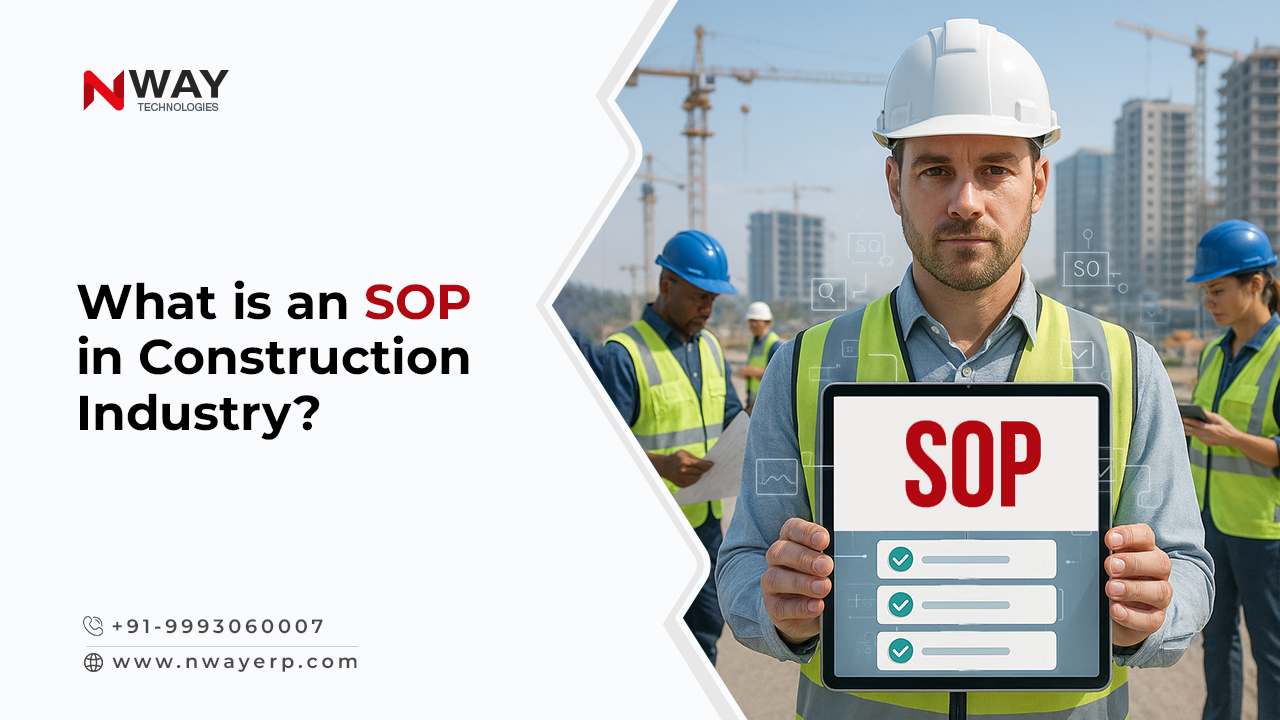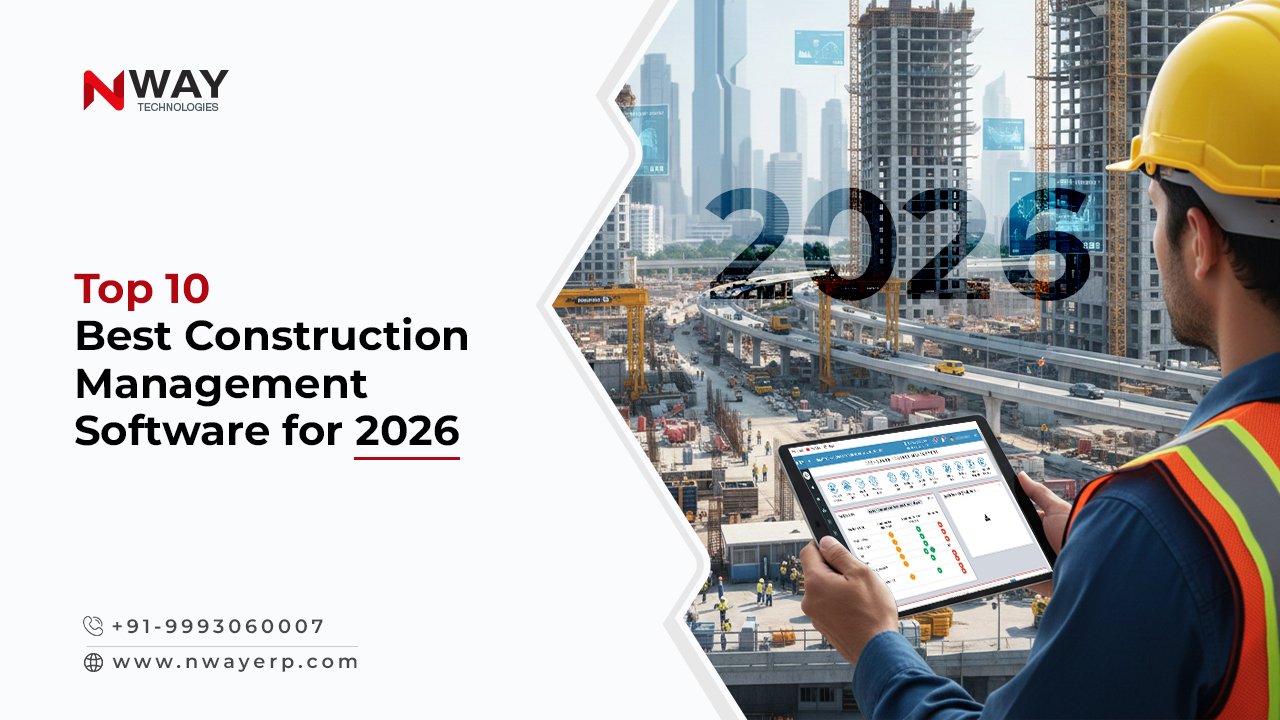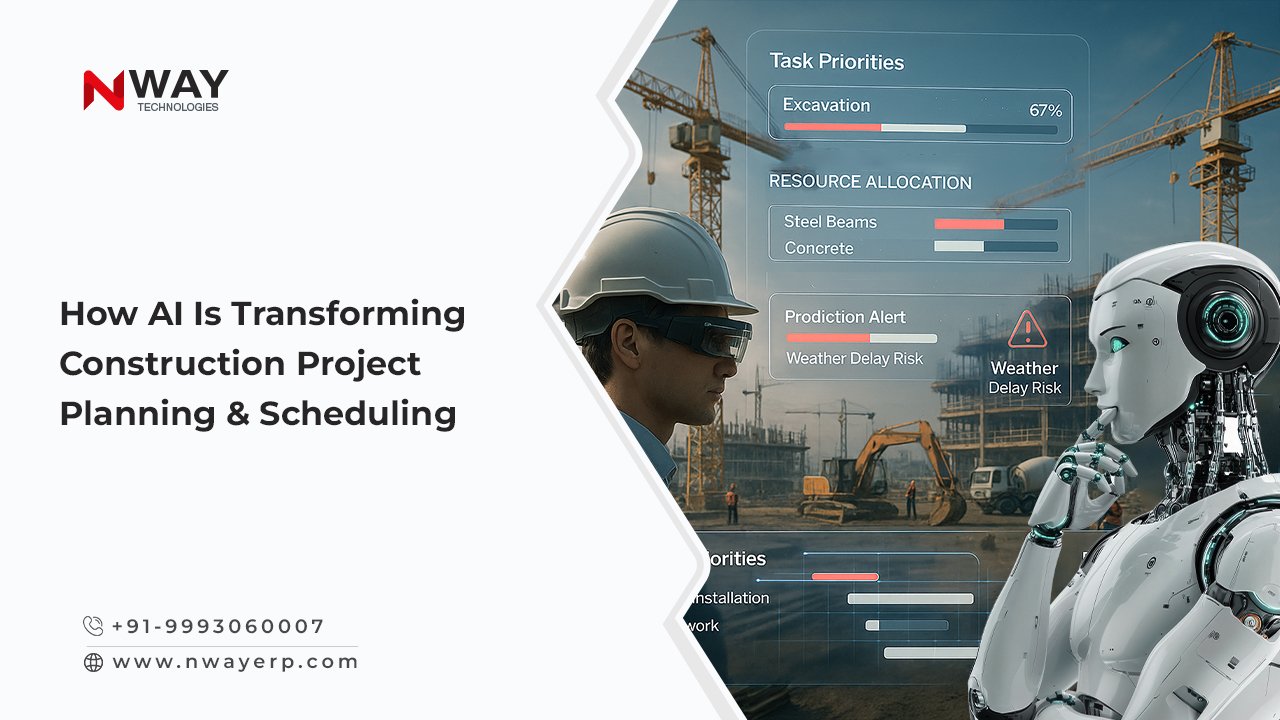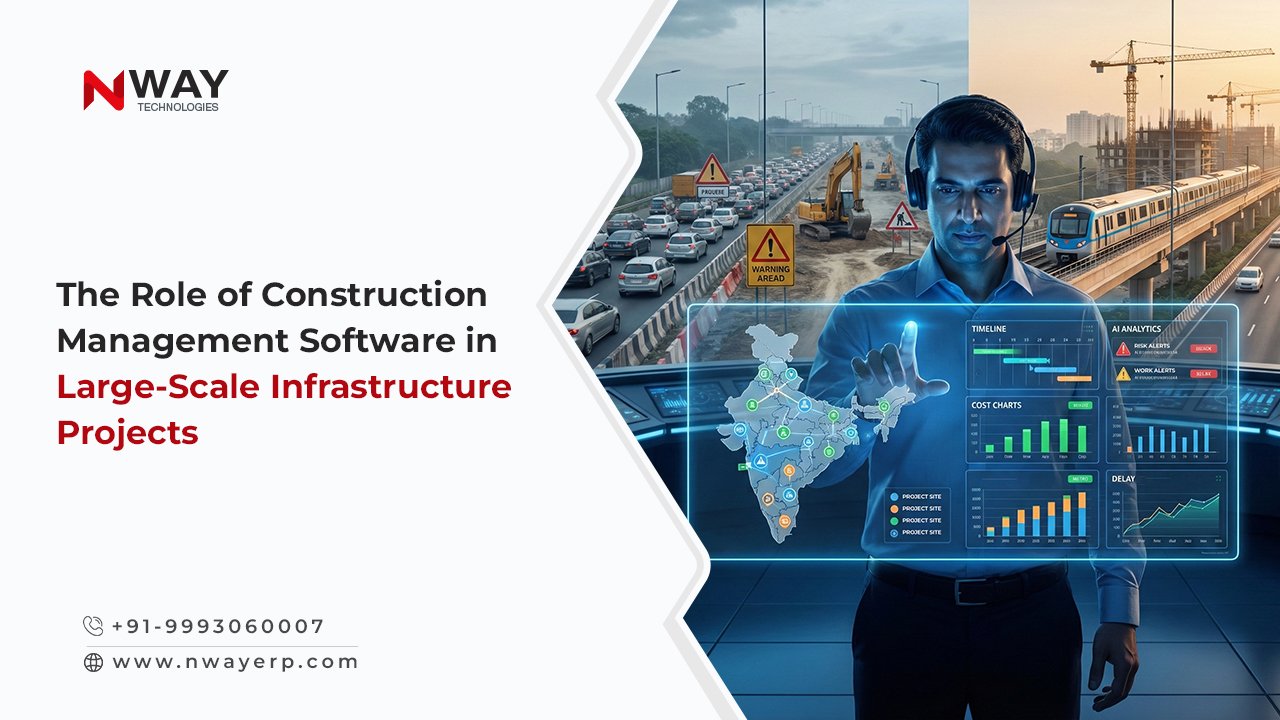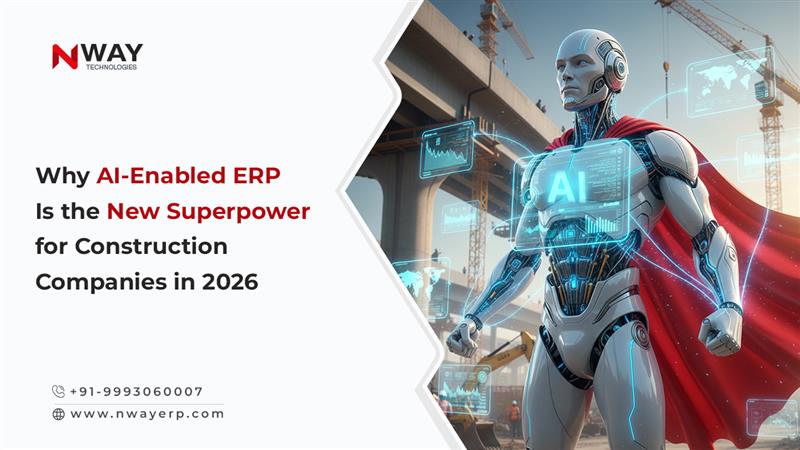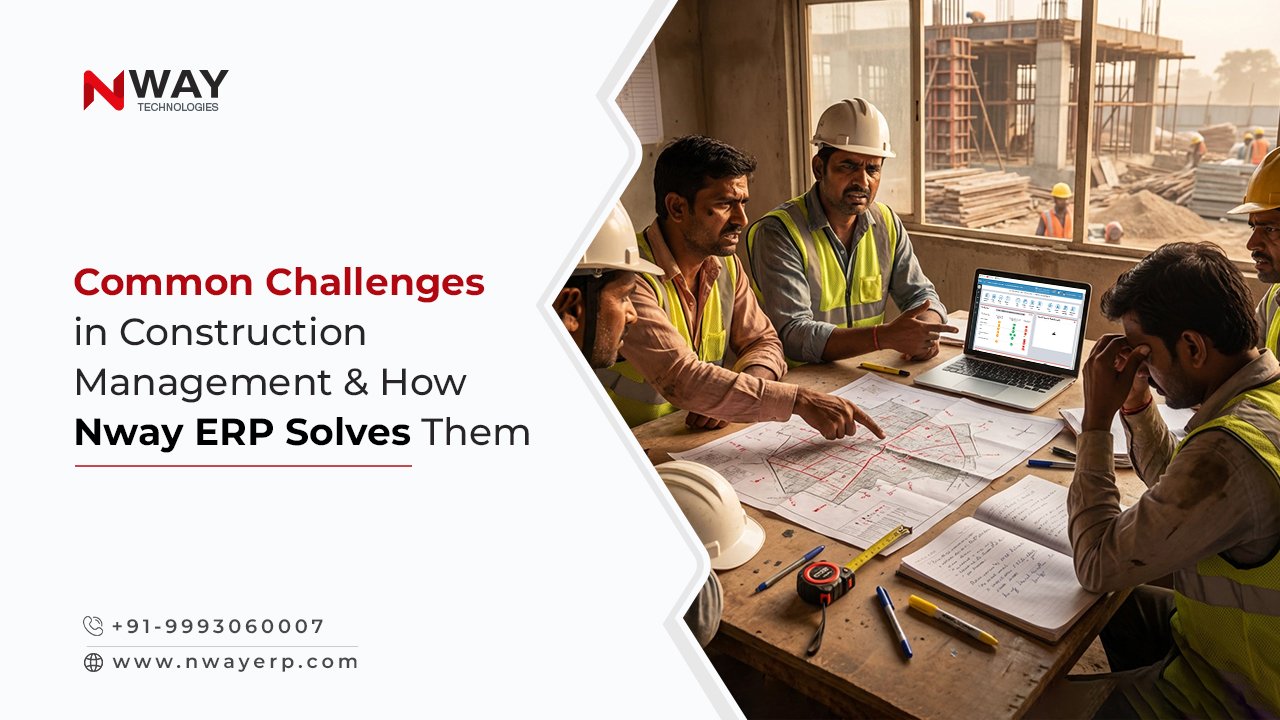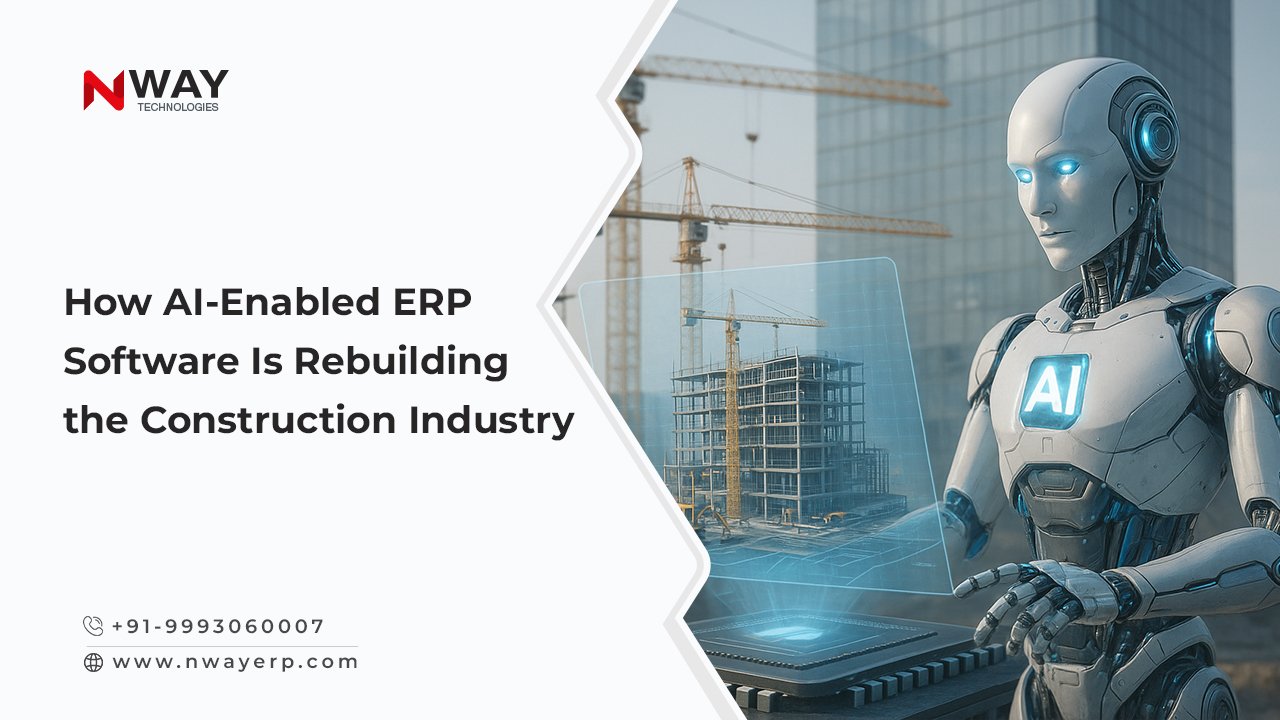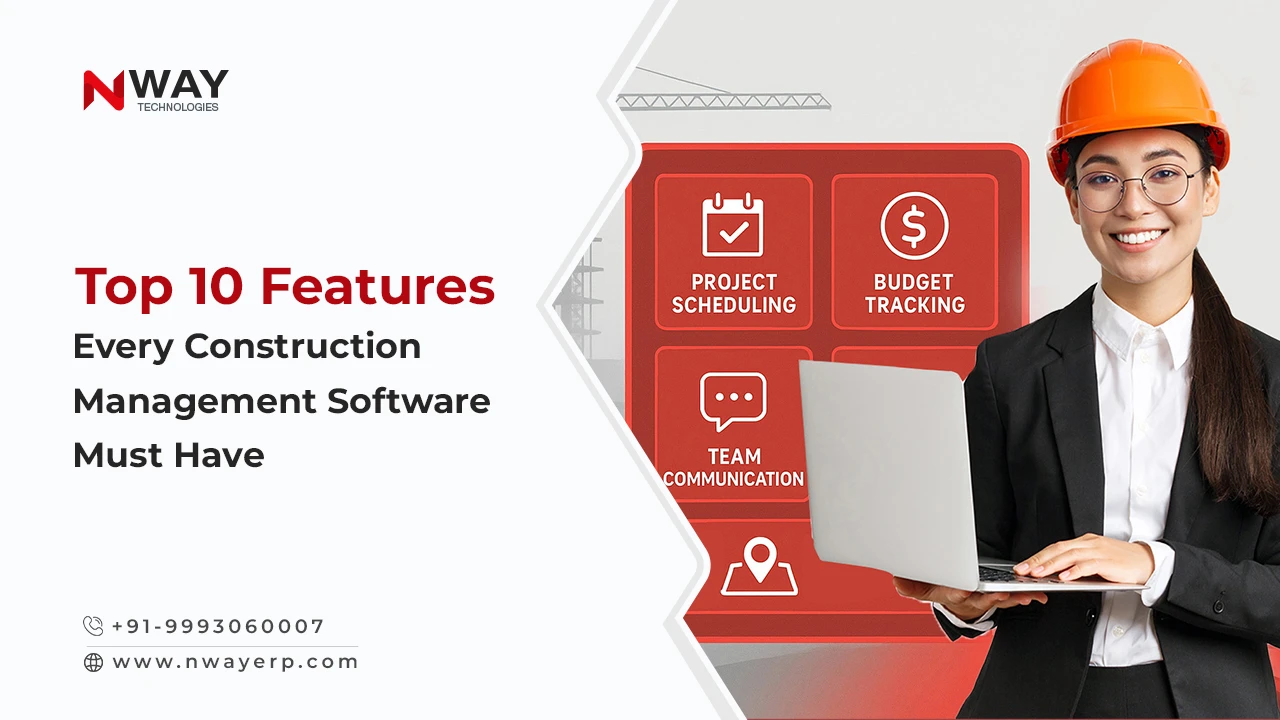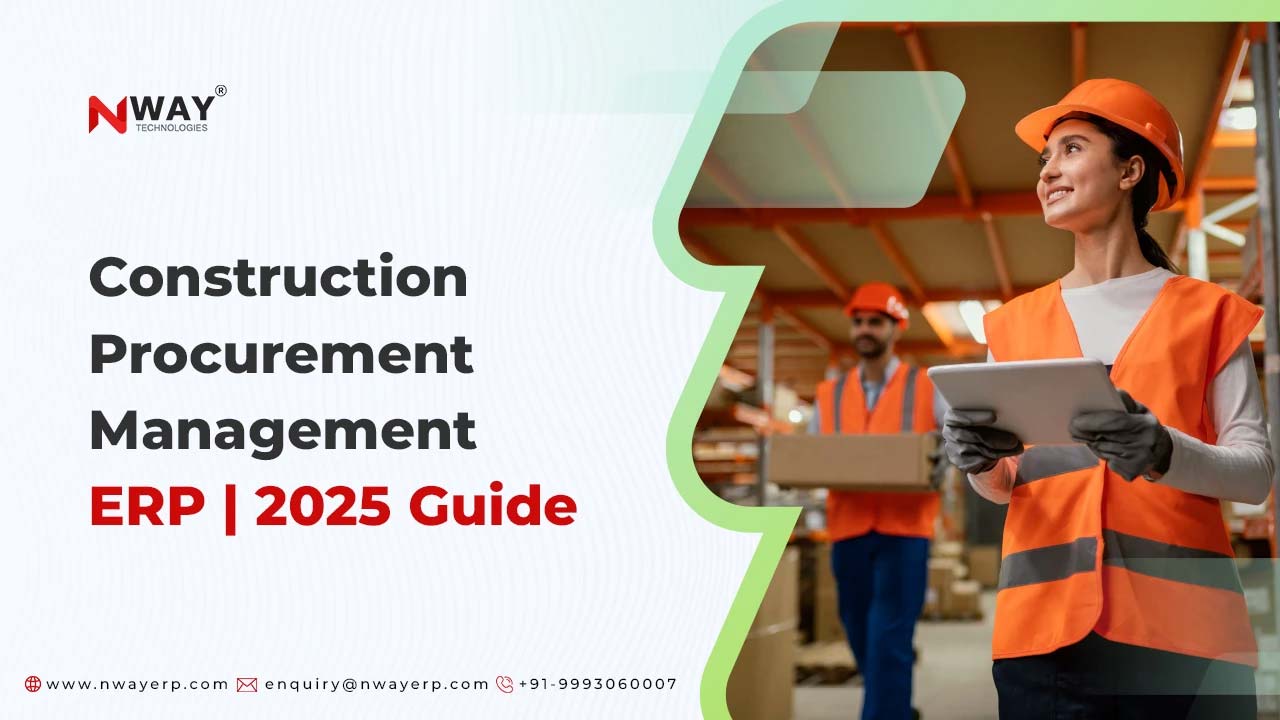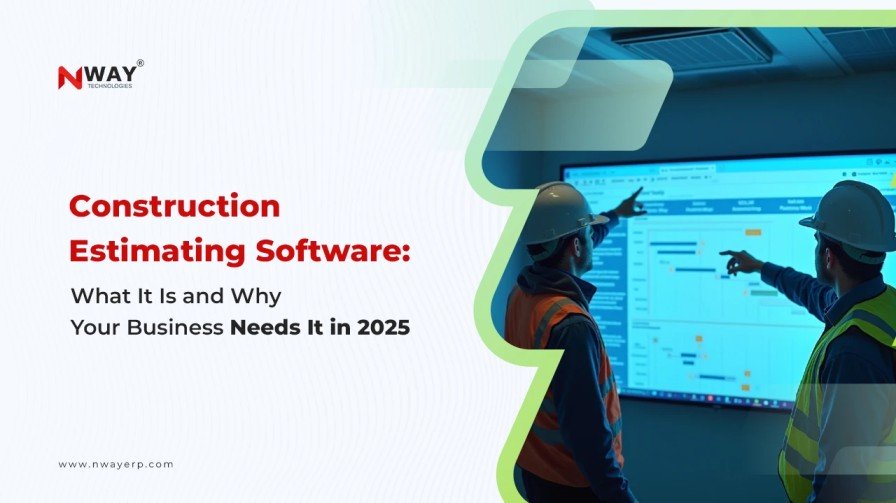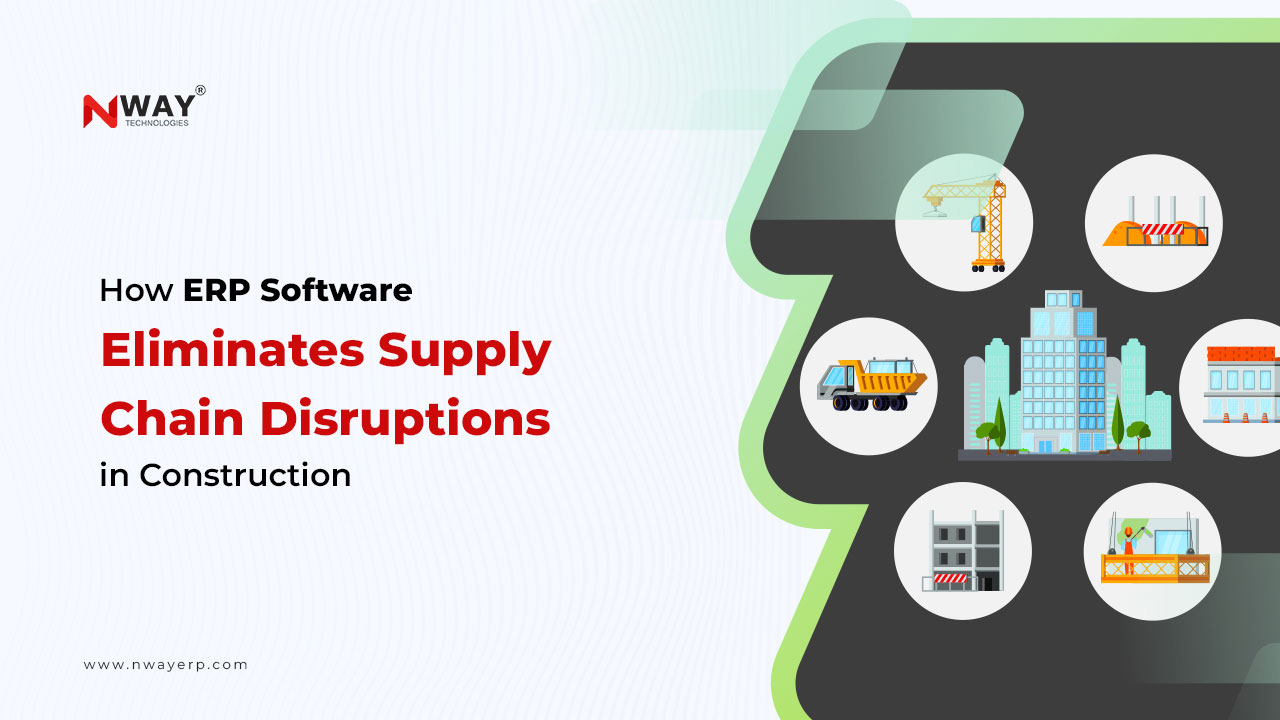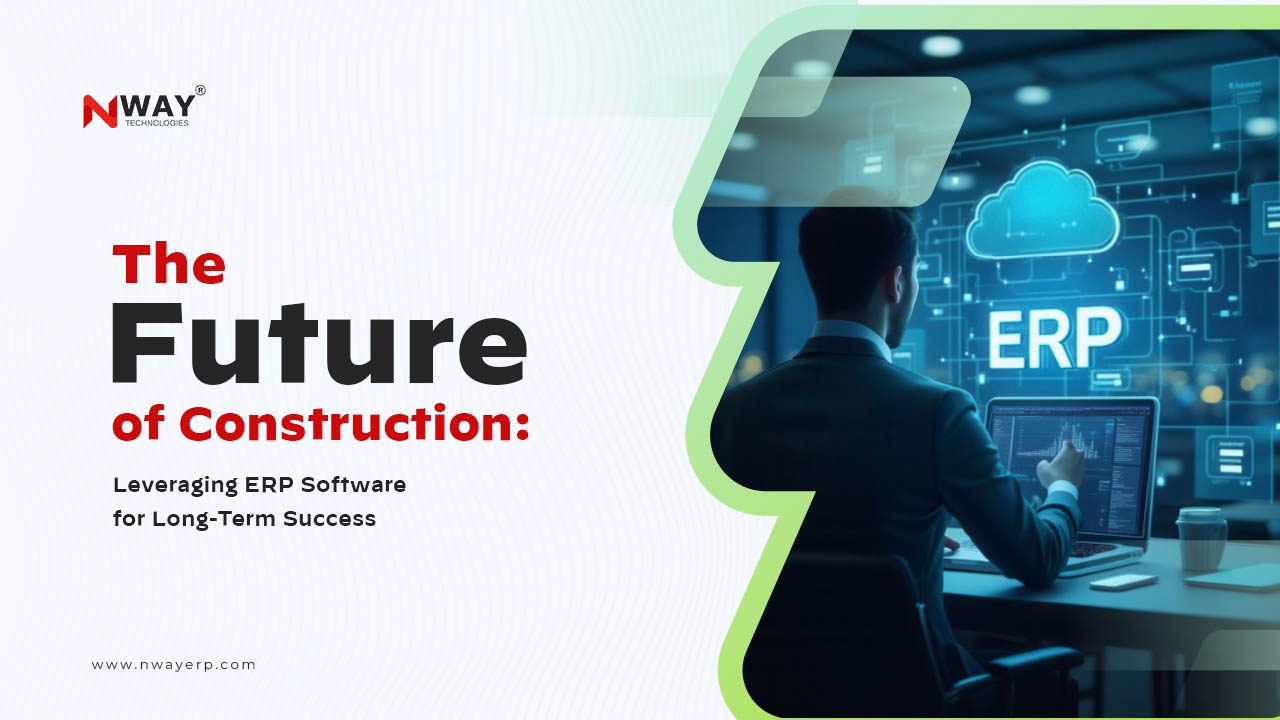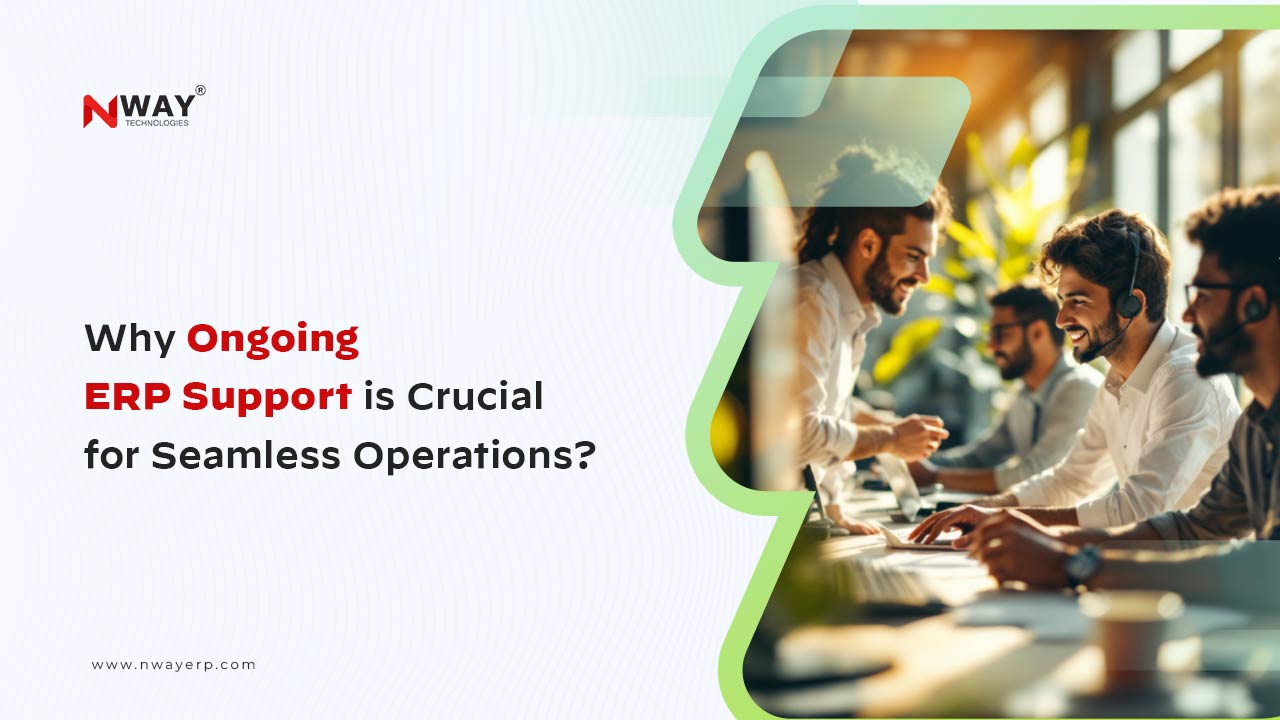Companies worldwide are adopting technologies that can drive success. In this regard, construction companies are also growing immensely by adopting technologies like Enterprise Resource Planning (ERP). ERP helps companies increase efficiency, streamline operations, and enhance productivity. However, selecting robust construction ERP software that includes efficient features and implementation strategies can be daunting. Read this blog to learn about ERP implementation challenges and risks and the solutions to overcome them.
Before jumping into the common ERP implementation challenges, let’s look into the role of ERP in the construction industry.
What is ERP in Construction?
Enterprise Resource Planning (ERP) is a comprehensive software platform that integrates and manages core business processes such as finance, supply chain management, human resources, procurement, project management, and more. By managing these processes in a centralized platform, ERP software provides real-time data flow, improves operational efficiency, and enhances decision-making capabilities. It creates a dynamic, project-based process in the construction industry.
What is the ERP Implementation Process?
ERP implementation refers to the process of planning, configuring, and deploying an ERP system within an organization. This process involves multiple stages, including:
Steps in ERP Implementation
- Planning: Defining goals, scope, and timelines.
- Design: Customizing the system easing construction-specific needs.
- Development: Configuring the software and integrating the existing systems.
- Testing: Managing the system correctly through efficient testing.
- Deployment: Rolling out the ERP system across the organization.
- Support and Maintenance: Continuous support and maintenance to address issues and updates.
7 Key ERP Implementation Challenges and Risks in the Construction Industry
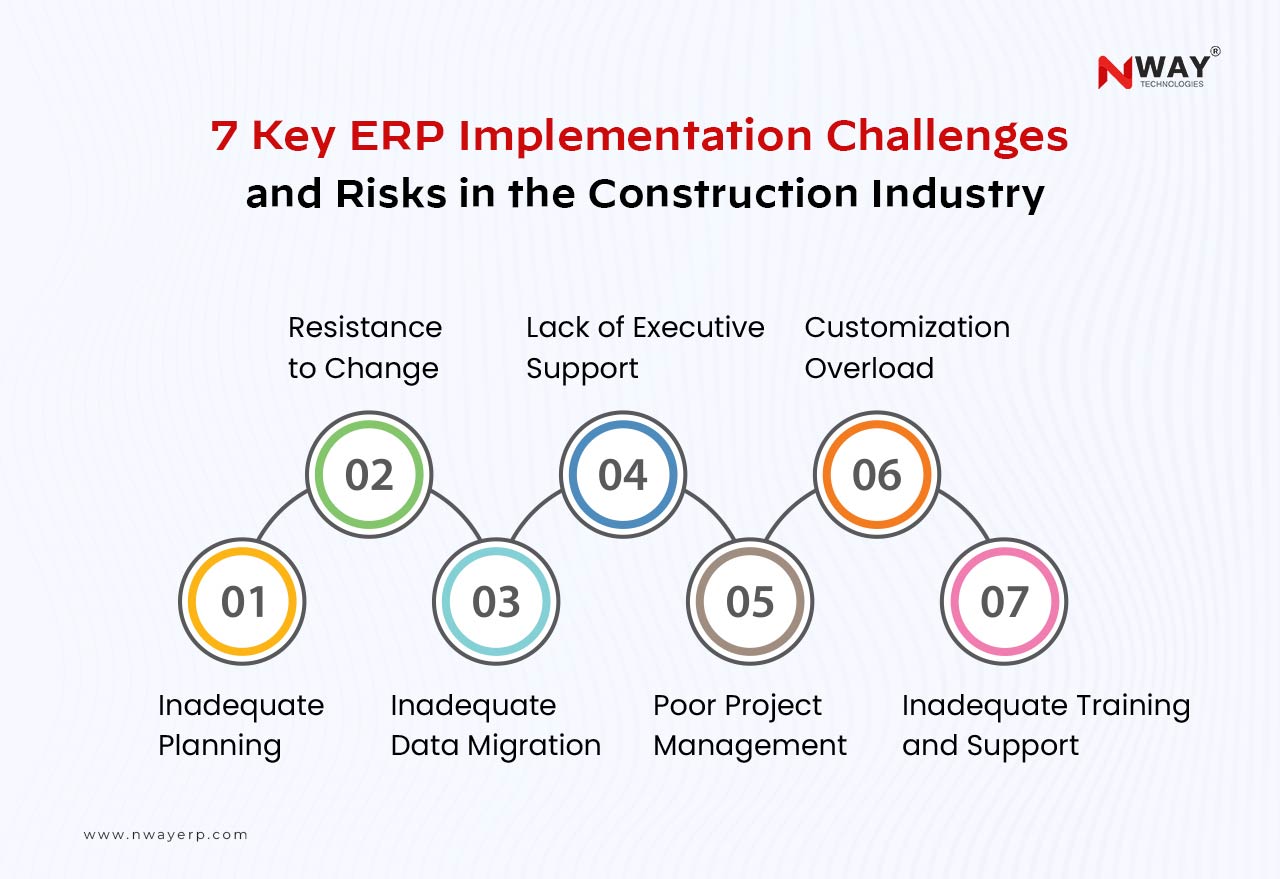
01. Inadequate Planning and Requirement Analysis
Many ERP projects in construction fail due to poor planning and insufficient resource analysis. Construction projects are complex, involving multiple stakeholders, subcontractors, and fluctuating project scopes, making thorough planning critical.
02. Resistance to Change
ERP implementation often requires significant changes in established construction workflows, which can lead to resistance from site managers, project teams, and field workers accustomed to traditional methods.
03. Inadequate Data Migration
Construction companies handle vast amounts of project data, including designs, material specifications, contracts, and schedules. Inaccurate or incomplete data migration can cause delays, cost overruns, and compliance issues.
04. Lack of Executive Support
Successful ERP implementation requires strong leadership and commitment from top management. In the construction industry, where contractors and project managers need to make decisions on-site, a lack of executive support leads to fragmented implementation and inconsistent system adoption.
05. Poor Project Management
Construction projects demand precise project management, and the same applies to ERP implementation. Without effective management, ERP projects can experience delays, budget overruns, and failure to fulfill operational requirements.
06. Customization Overload
Various ERP vendors fail to handle customization overload during ERP implementation. Its excessive modifications to fit specific requirements can complicate ordinary ERP systems, increase costs, and affect future updates.
07. Inadequate Training and Support
Construction teams offer work in diverse environments, from offices to remote sites. Without effective training and support, the on-site staff may be affected, leading to decreased productivity and project delays.
Overcoming ERP Challenges with Efficient ERP Solution
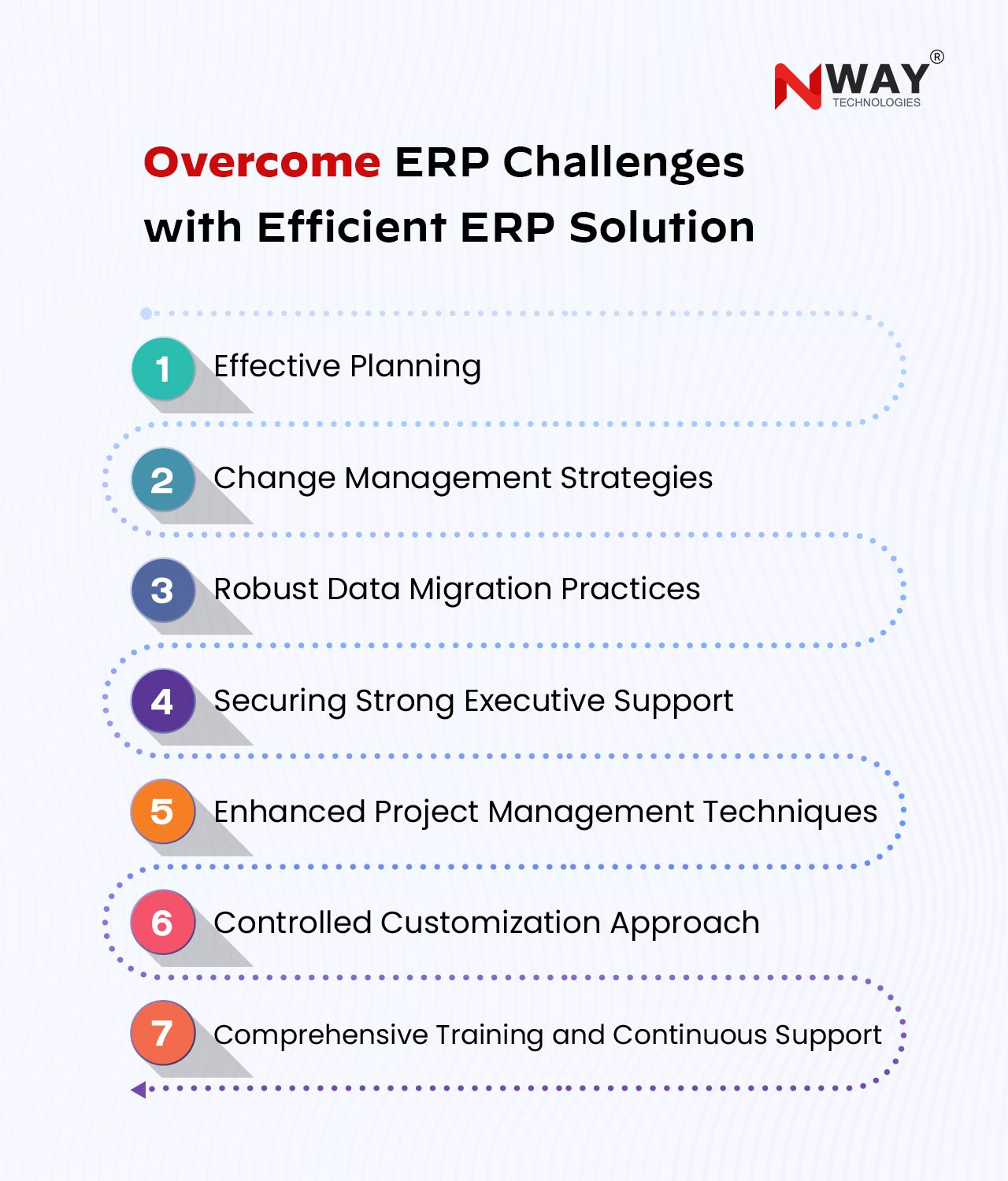
01. Effective Planning and Requirements Analysis
- Conduct a thorough needs assessment focusing on construction-specific requirements, such as project scheduling, resource allocation, and compliance tracking.
- Define clear objectives, scope, and deliverables aligned with construction project goals.
- Involve key stakeholders, including project managers and site supervisors, in the planning and execution.
- Create effective project plans with realistic timelines, budgets, and resource allocation tailored to construction workflows.
02.Change Management Strategies
- Foster a culture that embraces change through regular communication from leadership, emphasizing how ERP improves project performance.
- Clearly articulate the advantages of the new system choosing better resource management, cost control, and real-time project monitoring.
- Opt for comprehensive training and support tailored to different construction roles, from field workers to project managers.
- Articulate team members in the process to generate their interest and reduce resistance to change.
03.Robust Data Migration Practices
- Opt for efficient practices to conduct data audits to identify inconsistencies, redundancies, and inaccuracies in projecting data from different sites, locations, and projects.
- Segregate data before migration to ensure accuracy and efficiency for different project schedules, budgets, and vendor information.
- Perform multiple rounds of testing to check data integrity after migration specifically simulated project scenarios.
- Develop an effective migration plan with clear protocols and contingency plans.
04.Securing Strong Executive Support
- Secure active involvement and sponsorship from senior management and project directors.
- Align ERP goals with the organization’s strategic objectives to highlight its importance for construction project success.
- Regulatory update executives on project progress, challenges, and milestones.
- Motivate employees to champion the project, demonstrating a commitment to ERP adoption across the organization.
05.Enhanced Project Management Techniques
- Appoint an experienced project manager with strong leadership and problem-solving skills, ideally with a background in construction management.
- Establish a clear governance structure with defined roles and responsibilities across construction sites and corporate offices.
- Adopt advanced project management tools to track ERP implementation progress, risks, and issues.
- Perform status meetings, reviews, and risk assessments to stay on track.
06.Controlled Customization Approach
- Prioritize standard ERP functionalities that help construction companies align best practices.
- It is important to understand that customization somehow affects the functioning of ERP. Customize only when it adds significant value to construction operations, such as integrating with project management software.
- Document all customizations thoroughly for future reference and system upgrades.
- Evaluate the long-term impact of customizations on system performance and scalability.
07.Comprehensive Training and Continuous Support
- Create a comprehensive training program tailored to different construction roles, including on-site and remote staff.
- Work on workshops, interactive tutorials, and detailed user manuals focused on construction-specific ERP features.
- Establish a support system with help desks, dedicated support teams, and knowledge bases accessible from construction sites.
- Encourage continuous learning and skill development through refresher courses and advanced training sessions.
Conclusion
ERP implementation is a complex process in the construction industry. It requires effective management at every level. The first step is to choose good ERP software that can help overcome common ERP implementation challenges and provide smooth and efficient construction processes in all projects. Successful implementation can drive operational efficiency, trigger success, and facilitate long-term growth. So, choose a robust ERP system that effectively empowers your construction business and supports its strategic vision and project execution.
